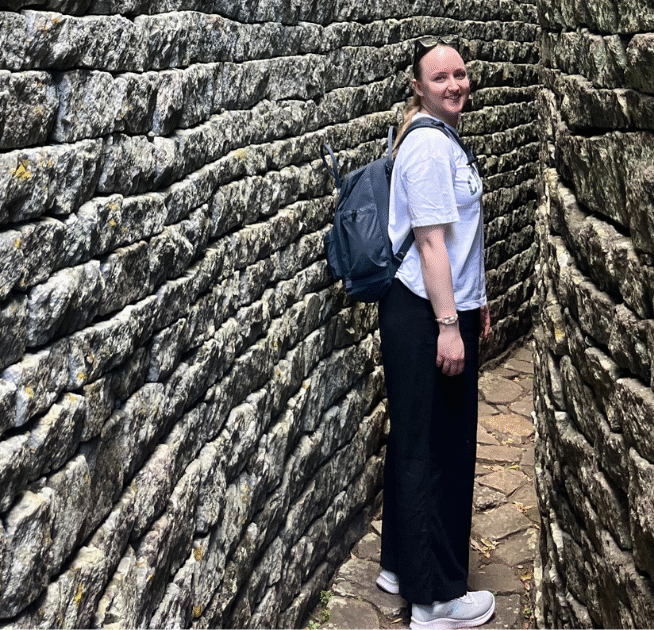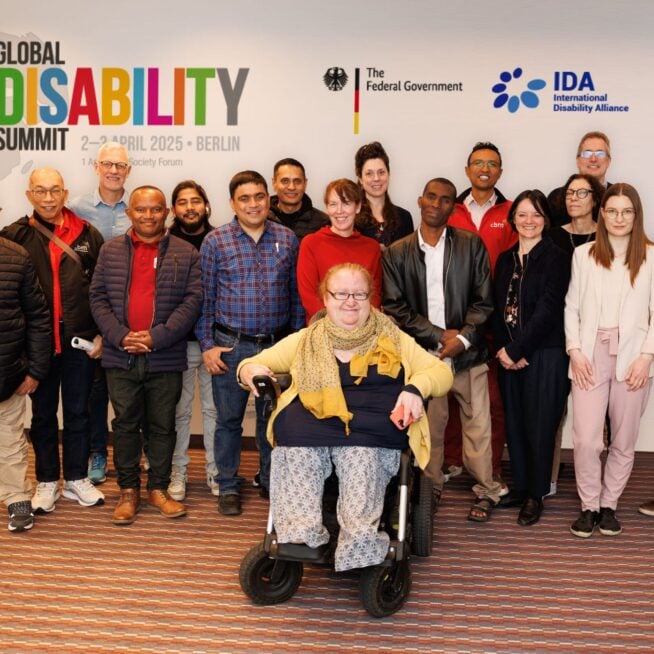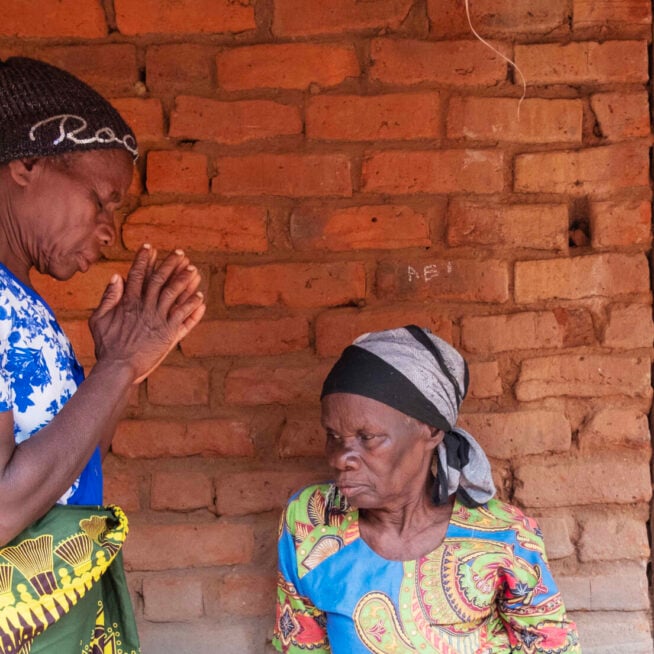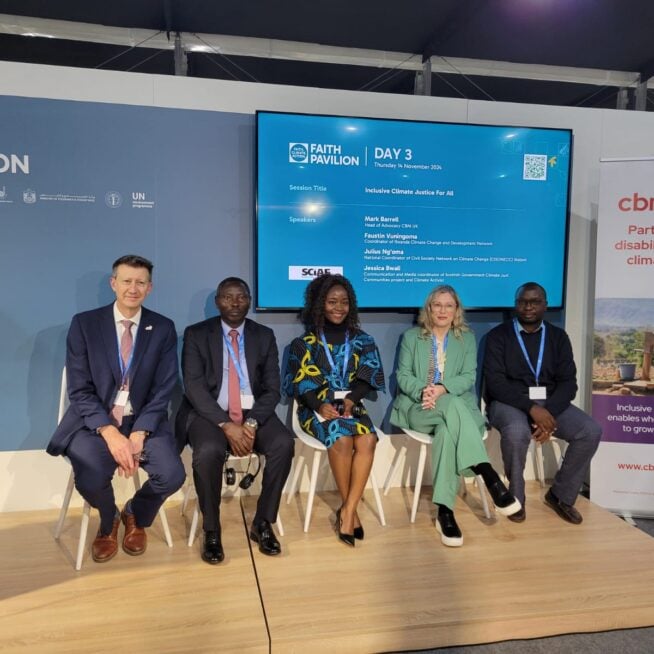Want to transform lives with us? Stay in touch and hear about our news, activities and appeals by email!
Overcoming mental health challenges: stories from a Kenyan university
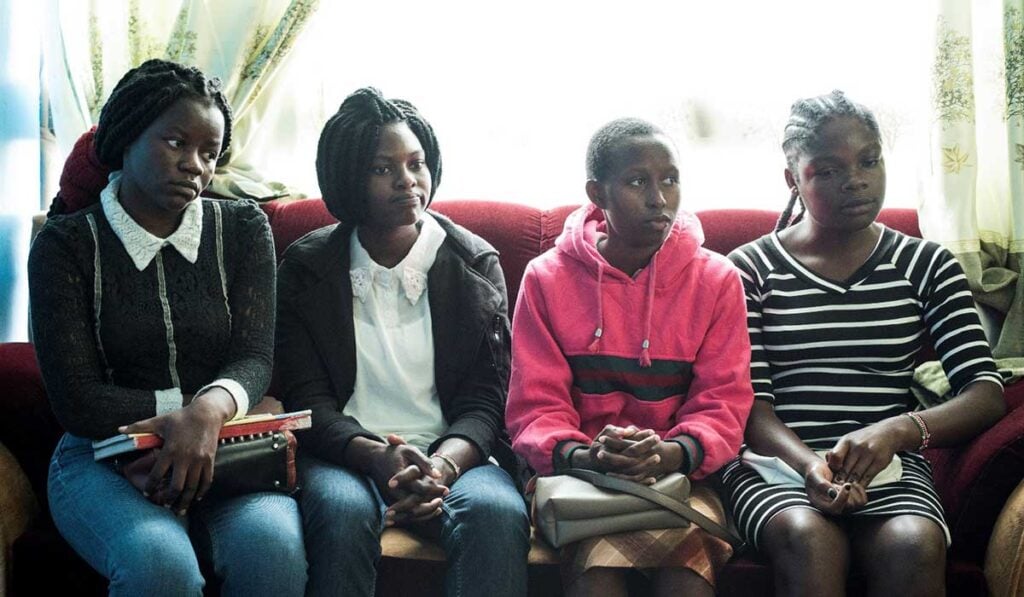
Mental health conditions affect as many as one in four people at some point in their lives, equating to about 12 million Kenyans alive today. Research at universities has shown that students, particularly those from lower-income backgrounds, are particularly at risk of developing mental health conditions. If the right support is not available, this can have devastating consequences for their studies and future prospects. Through partnerships with Kenyatta and Chuka universities and student groups, CBM and Basic Needs Basic Rights Kenya have been working to improve knowledge, peer support and services for people with or at risk of mental health conditions.
In this blog, we hear from three students at Chuka University about how these services have helped their mental wellbeing and enabled them to thrive.
“When I came to counselling the told me first I have to start by loving myself. I do what can make me just be happy so every weekend I can go and sing I read novels I do cooking. They told me just do what makes you feel comfortable.” – Rehema
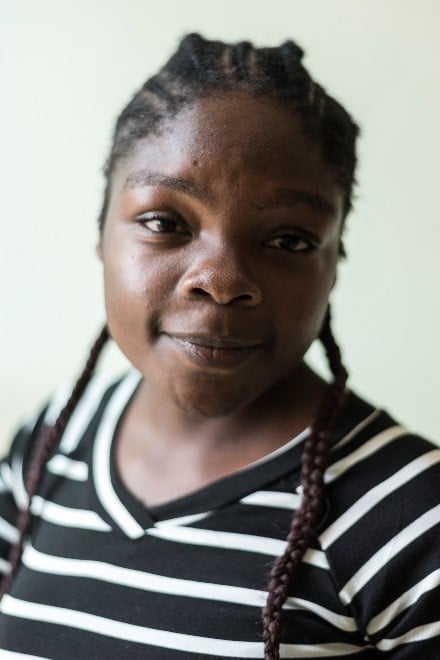 Rehema is a 4th year student, studying for a Bachelor of Education in Science and Mathematics. Whilst at university Rehema became pregnant.
Rehema is a 4th year student, studying for a Bachelor of Education in Science and Mathematics. Whilst at university Rehema became pregnant.
She was advised by friends and relatives to have an abortion, but decided to keep the baby. This decision meant she lost the scholarship which was funding her place at university. Losing this substantial financial support caused considerable stress which had a devastating impact on her academic work.
Rehema felt like her peers did not understand what she was going through and she withdrew from those around her.
“In that time I used to feel like there’s nobody who could be my friend and I never wanted another relationship with anybody. I didn’t want any visitation.”
She sought help from student counsellors, part of the CBM-supported project, who ran a peer support group called Empowering Young Mothers. The sessions trained young mothers on how to raise their children and balance this with their academic studies.
“I go the group ‘Empowering Young Mothers’ where I met Helen. We would come every day and share stories and teaching on how to nurture our children and how we can balance our studies and motherhood. That has helped me a lot.”
Sharing her experience with others in the group has helped Rehema to accept her challenges and build resilience. Every week the Student Mothers group runs an empowerment session where students give motivational talks. Because of these sessions, Rehema’s interpersonal skills have flourished and she feels more confident talking to friends and attending classes.
“Now even I can talk to my friend freely. I feel it’s good to talk to people.”
The Student Mothers groups also links the mothers to employment opportunities at the university helping them to earn money whilst they are studying. Rehema looks forward to finishing her studies in April this year. Her brother, who is himself a teacher, is looking for teaching vacancies for her so she can earn a living and support herself and her son.
“When I came to Chukka, I am coming from a family which is not financially stable. My father died when I was in class 6 so my mother who is a peasant farmer is the one who is taking care of me and the other kids, and I just struggled.” – Victoria
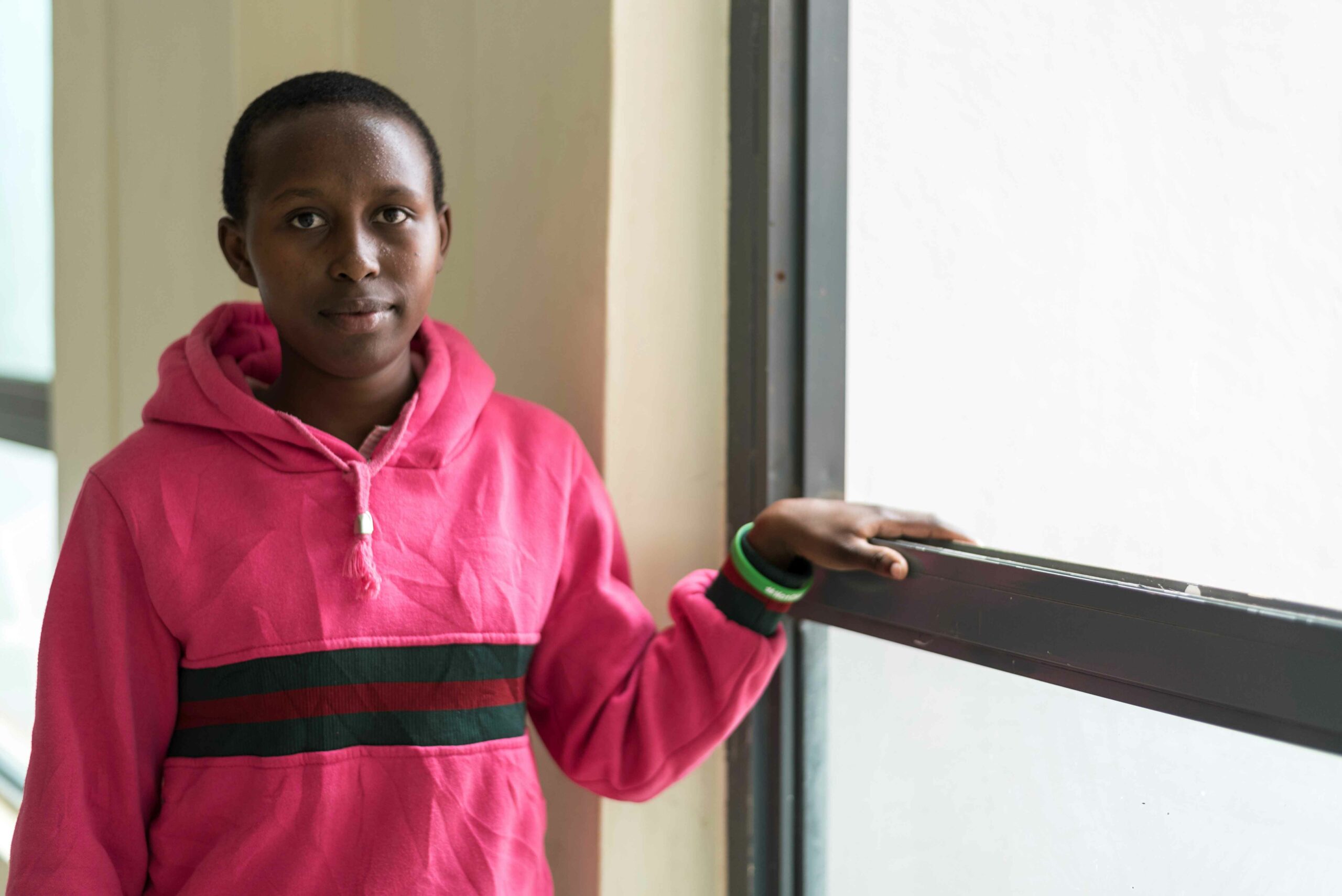 Victoria is a 2nd year student, taking a Bachelor of Arts degree in Kiswahili, Religion and Sociology. Since her father’s death, her family experienced financial difficulties and struggled to raise the school fees for her to complete her education. But despite these challenges, she did well at school and earnt government sponsorship for university.
Victoria is a 2nd year student, taking a Bachelor of Arts degree in Kiswahili, Religion and Sociology. Since her father’s death, her family experienced financial difficulties and struggled to raise the school fees for her to complete her education. But despite these challenges, she did well at school and earnt government sponsorship for university.
Because of the difficulties she’s faced, Victoria worried that she would not be able to complete her studies. She also developed ulcers, believed to be caused in part by the stress she was feeling. Negative thoughts filled her mind exerting an intense pressure. , Feeling like she didn’t fit in, she withdrew from her peers. Her mental health spiralled downwards and her condition became so severe she started to contemplate suicide.
Victoria found respite through the counselling and wellbeing services run by the university in partnership with CBM. She received Cognitive Behavioural Therapy and life skills training by student counsellors which helped her form a more positive attitude of herself and the environment around her.
Later Victoria joined a peer support group called “flame mentors” which is a club that mentors students and builds their communication skills and networks to help them grow in confidence and self-worth. The group also assisted Victoria with an application for a Higher Education Loan and government bursaries to help ease the financial stress Victoria was experiencing.
Through the mentorship programme Victoria learnt the importance of balancing her schedule and taking time away from studying to look after her wellbeing. Now Victoria ensures she has time to do activities which help to guard her mental health such as meditation, exercise, and visiting friends. Without the counsellor’s intervention, Victoria said that she wouldn’t have proceeded well in her studies and in life.
The counselling has given Victoria the confidence and belief she needs to thrive and taught her practices to look after her wellbeing whatever situation she finds herself in. Now Victoria is determined to change her family’s socio-economic status, and, when she’s back home for the holidays, she gives motivational talks at her old high school.
After she graduates, Victoria plans to get a job to help provide for her family. But one day she hopes to return to university and complete a post-graduate diploma so she can get a job at a secondary school and help to make sure young students get the support they need.
“We talk much, we share a lot. In life there are many challenges and when we share stories we could know, ‘oh I’m not alone in this journey.’ And this is when we got strong and much motivated. Because I joined that group it has made me grow.” Valery
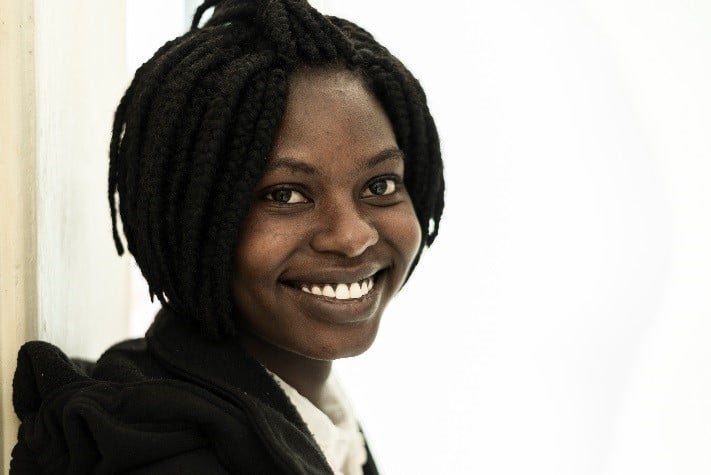 Whilst in her 2nd year of university studying biology and chemistry, Valery became pregnant. The father distanced himself from her as he didn’t want the responsibilities of bringing up a child. As the pregnancy progressed, so did the stress which Valery was under. She found support from the Empowering Student Mothers Group being funded by CBM. Now Valery feels confident managing her studies with parenthood and is looking forward to the opportunities that await after university.
Whilst in her 2nd year of university studying biology and chemistry, Valery became pregnant. The father distanced himself from her as he didn’t want the responsibilities of bringing up a child. As the pregnancy progressed, so did the stress which Valery was under. She found support from the Empowering Student Mothers Group being funded by CBM. Now Valery feels confident managing her studies with parenthood and is looking forward to the opportunities that await after university.
When Valery was young her own mother passed away. She was taken in by her grandmother who supported Valery wherever she could. But, her grandmother did not have a lot of money and struggled to provide the costs for Valery’s education. Despite the challenges Valery’s hard work and determination meant she secured a place at university and was supported by different sponsors.
She started university very positively, but constant worries about how she would look after the baby and balance her studies took their toll on Valery. “My academics were not ok during that period because I had stress. I did not even want to wake up to go to classes.”
The university, in partnership with CBM, offers counselling and wellbeing support for young mothers. Valery started to receive counselling support from the universities’ therapist Helen.
“Helen helped me a lot. I talked with her and I told her about the baby’s daddy. She told me just relax, maintain a balance to your education. Her sessions helped me a lot.”
Valery joined the student mothers support group where she was given advice about how to raise her child and balance this with her academic studies. The group gave Valery a vital support system. Thanks to her involvement with the group, Valery is comfortable with motherhood and learning how to cope with stress triggers.
With time, the father finally took responsibility for the child and offered his support to Valery. Her time at university will soon be over. As she heads to new ventures Valery feels empowered because of the support she received from the young mothers group and is looking forward to her next step.
“So it is about being a responsible mother and being out in society now that many of us are exiting the campus. I’ve seen how to be empowered and how to face society on various issues and relationship issues.”
This project was in collaboration with Fundació Nous Cims. Find out more about the project.
Images: 1st – L-R: Victoria A, Valery, Victoria M, and Rehema. 2nd – Rehema. 3rd – Victoria M. 4th – Valery. ©CBM/Eshuchi

